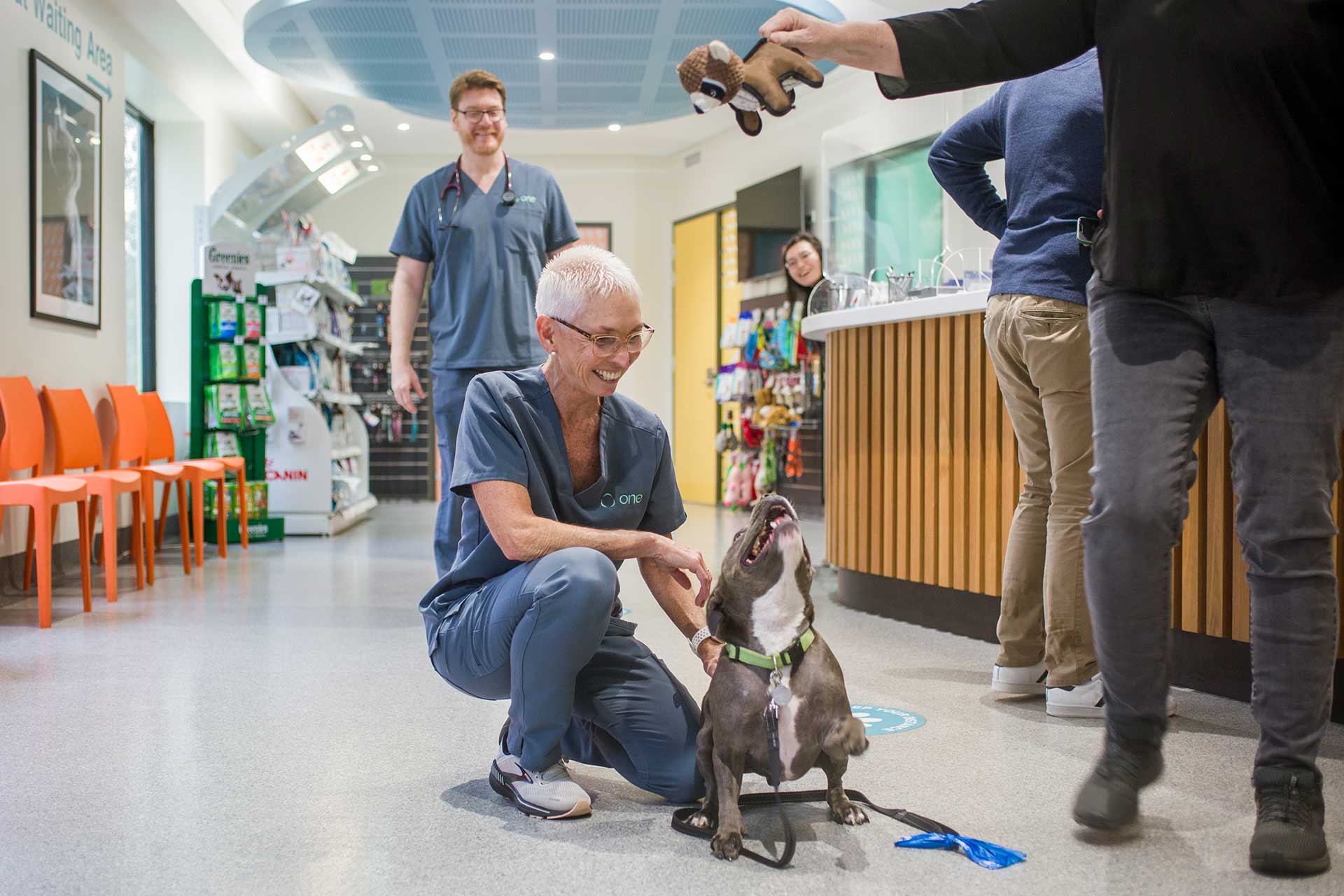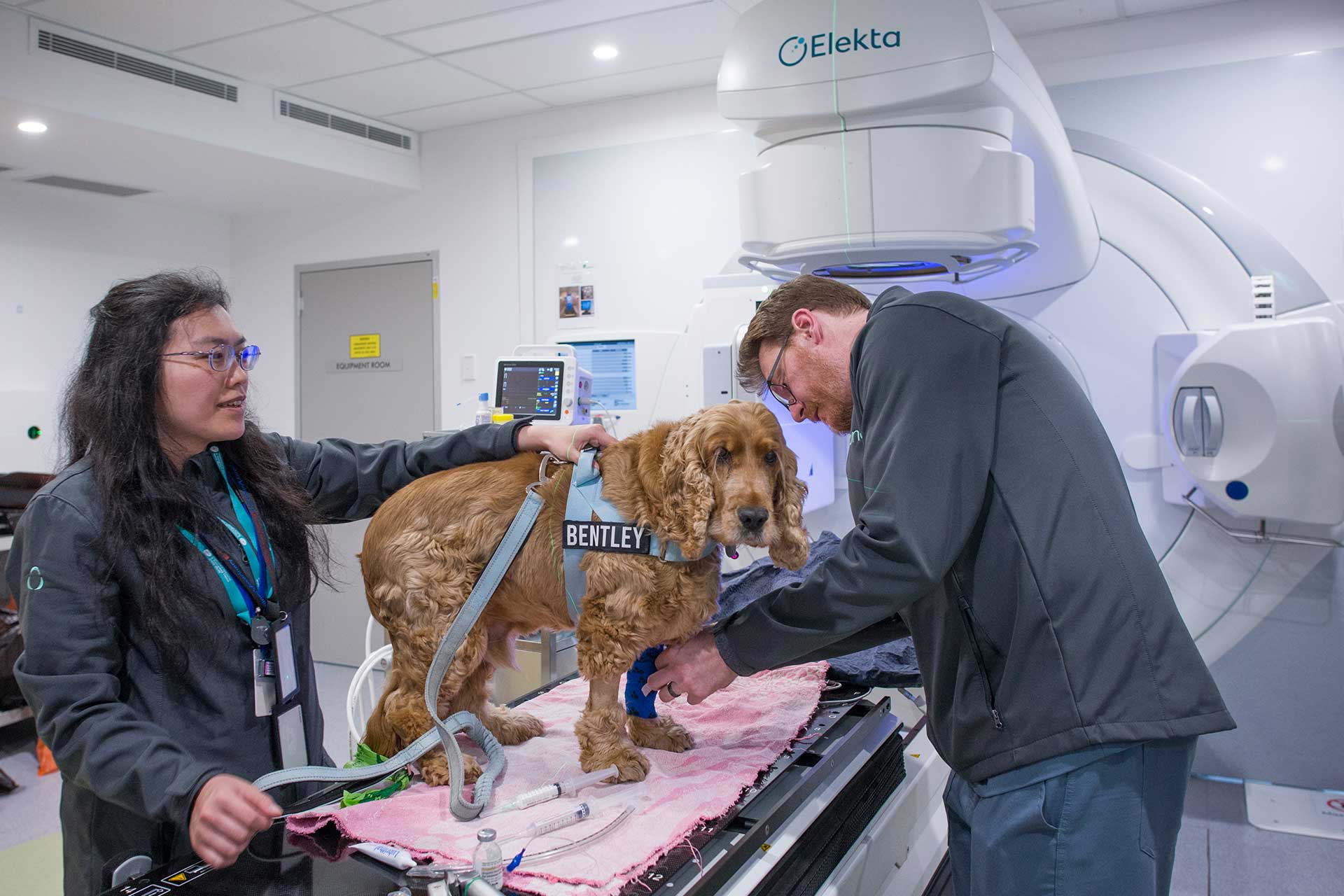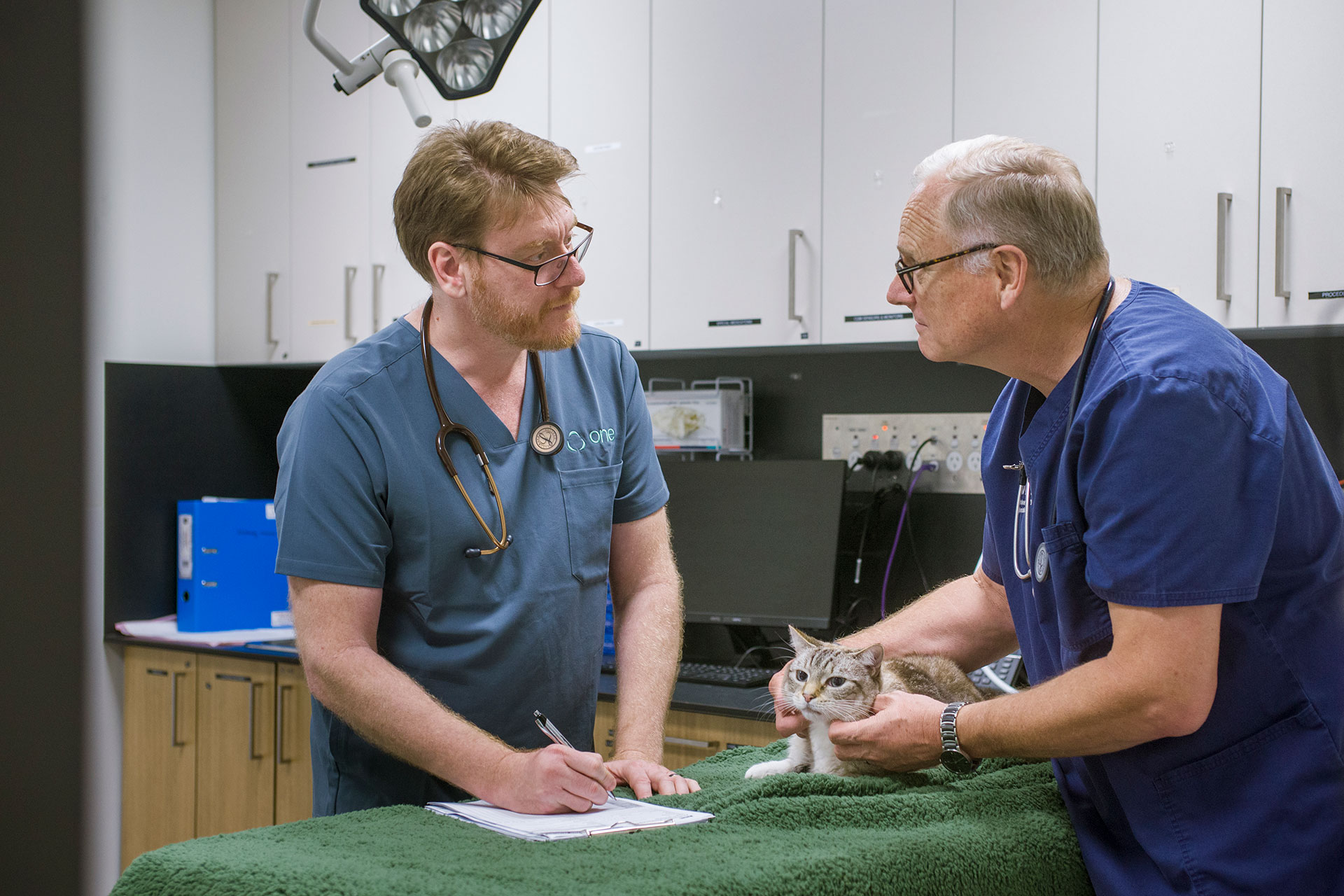Chemotherapy
Unlike surgery and radiation therapy, chemotherapy is a systemic treatment option. It is frequently used to treat cancers that have spread from a primary tumor to distant sites (metastasized) but can also be used to help control localized tumors in conjunction with surgery and radiation therapy. It involves the administration of various chemical drug formulations via either oral, topical or injectable (intravenous, subcutaneous or intralesional) routes. As these compounds are absorbed systemically and distributed around the body, they are indiscriminate in terms of their contact with various tissues.
However, as with most medications there is a therapeutic window in which these medications can be used to effect disease without exceeding an acceptable toxicity profile in the patient. In most instances, chemotherapy targets rapidly dividing cells, which is a characteristic of most tumor cells. Fortunately, most normal tissues are not rapidly dividing and so are minimally impacted by chemotherapy. Notable exceptions include the bone marrow and gastro-intestinal lining cells. As such adverse effects tend to be associated with either bone marrow suppression and/or gastro-intestinal upset.
Over many decades, veterinary oncologists have built up a vast knowledge of dose/toxicity profiles in domestic animals and together with advancements in the use of anti-nausea and other supportive medications, adverse effects can be kept to a minimum with tailored and individual dose regimens. In addition to these conventional chemotherapy agents, more targeted small molecule inhibitors impacting cells with specific mutations are also available in animals and there is a growing number of pharmaceutical companies investing in novel chemotherapy treatments for animal cancer patients.



